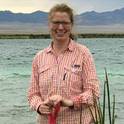
Article
Shoreline modification affects recruitment of invasive Phragmites australis
Wetland Ecology and Management
(2020)
Abstract
Shoreline hardening affects ecological processes in nearshore intertidal ecosystems and upland habitats. Invasive species establishment and spread is one consequence of shoreline alterations. Invasive Phragmites australis has spread throughout the U.S., including in subestuaries with hardened shorelines. It is unclear, though, by what mechanisms shoreline hardening facilitates P. australis establishment. We tested the hypothesis that shoreline structures are associated with seedling recruitment, resulting in higher levels of within stand genetic diversity. We used microsatellite analysis to examine the genetic diversity of P. australis stands associated with two types of shoreline structures (riprap, bulkhead revetments) compared to unaltered shorelines. Because P. australis seed viability depends on cross-pollination, higher levels of genetic diversity in stands associated with hardened shorelines are more likely to contribute to the spread of invasive P. australis. We conclude that the extent of shoreline modifications in the Chesapeake Bay has contributed to the spread of P. australis by seeds. The results have implications for the management of P. australisassociated with the establishment of shoreline structures.
Disciplines
Publication Date
2020
DOI
https://doi.org/10.1007/s11273-020-09757-6
Citation Information
Karin M Kettenring. "Shoreline modification affects recruitment of invasive Phragmites australis" Wetland Ecology and Management Vol. 28 (2020) p. 909 - 919 Available at: http://works.bepress.com/karin_kettenring/193/
